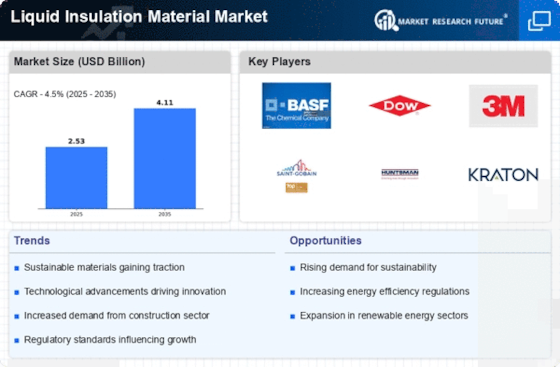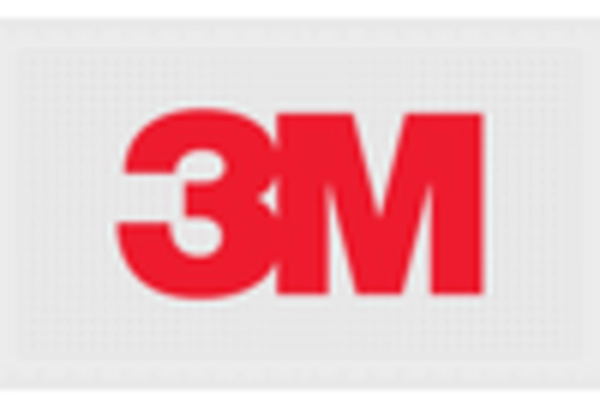Market Trends
Key Emerging Trends in the Liquid Insulation Material Market
The market trends of liquid insulation materials are undergoing significant changes driven by factors such as energy efficiency requirements, sustainability considerations, and advancements in insulation technology. A prominent trend in this market is the increasing demand for energy-efficient solutions in construction and industrial applications. Liquid insulation materials, including spray foam and liquid thermal coatings, are gaining popularity for their ability to create a seamless and effective thermal barrier, minimizing heat transfer and contributing to improved energy efficiency in buildings and infrastructure.
Moreover, sustainability is a key influencer in the market for liquid insulation materials. As environmental concerns become more pronounced, there is a growing emphasis on insulation products that are environmentally friendly and have a lower ecological impact. Manufacturers are responding by developing liquid insulation materials with reduced volatile organic compounds (VOCs), using bio-based or recycled content, and ensuring recyclability. This trend aligns with the broader industry push towards green building practices and sustainable construction materials.
Customization is emerging as another significant trend in the liquid insulation material market. As the construction industry seeks insulation solutions that can adapt to various architectural designs and structural complexities, manufacturers are offering customizable liquid insulation formulations. This allows for tailored applications to meet specific thermal and moisture control requirements, accommodating diverse construction needs and design specifications.
Technological advancements are playing a pivotal role in reshaping the liquid insulation material market. Manufacturers are investing in research and development to enhance the performance characteristics of their products. This includes innovations in the formulation of liquid insulation materials to provide better thermal conductivity, improved fire resistance, and enhanced durability. Additionally, advancements in application technologies, such as automated spraying systems, contribute to more efficient and precise installations, meeting the demand for reliable and high-performing insulation solutions.
Furthermore, the market is witnessing a surge in demand for liquid insulation materials in retrofitting and renovation projects. As the focus on energy efficiency extends to existing buildings, liquid insulation offers a versatile solution for upgrading insulation in older structures. Its ability to conform to irregular surfaces and penetrate hard-to-reach areas makes liquid insulation a valuable choice for enhancing the thermal performance of buildings without major structural alterations.
In terms of market dynamics, competition among liquid insulation material manufacturers is intensifying. Companies are striving to differentiate their products by improving their insulation properties, addressing sustainability concerns, and enhancing application methods. Meeting regulatory standards for energy efficiency and environmental impact, adapting to diverse construction requirements, and providing effective insulation solutions are critical factors for success in this competitive market. As the construction industry continues to prioritize energy-efficient and sustainable building practices, the liquid insulation material market is expected to witness sustained growth and innovation.


















Leave a Comment